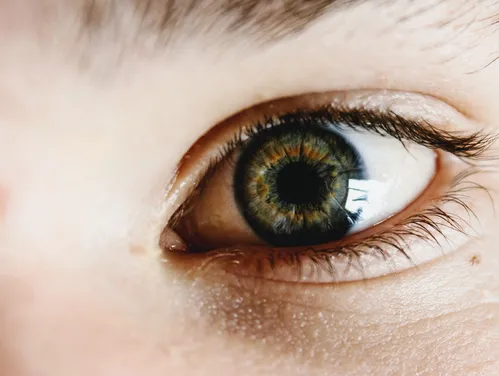By Dr. Scott Palmer, O.D.
De Witt Eye Care Clinic
The Iowa Department for the Blind is one of the best-kept secrets. I am a practicing optometrist and I have a few patients that do not have 20/20 vision. When I see another, that is when I call "The Department."
Let me share a story with you. One lovely lady that sticks in my mind is a spicy 88-year-young that we will call M.R. She initially came to my office about two years ago. She had gone to the drivers’ license station, and they would not renew her license. M.R.’s fierce independence enabled her to live on her own this long; she was not about to quit now.
Being very intelligent, she knew that glasses helped her to see so maybe she just needed different ones to restore her vision. After my examination and much discussion I, gave her some wonderful news, she did not need to purchase glasses, and some not-so-wonderful news, that her current glasses were as good as any glasses could be. I did, however, fill out an Iowa Department of Transportation form so she could get a limited license.
At the conclusion of my examination I asked, as always, if she had any questions. She had none, and then I mentioned “The Department.” The state of Iowa has a department that will send someone to her home, or café, or wherever she wanted to meet with them. It provides many services to help with daily tasks, they have books on tape, and their services are funded through taxes, so M.R. would not have to pay for their services.
I was only slightly in fear for my life for about five seconds as M.R. told me in no uncertain terms that she did NOT need the Department’s help.
Time passed and I again saw M.R. in my office. At the end of my examination I again mentioned that there was an agency that might be able to make some daily tasks easier and asked if she would be interested in speaking with them—just to see exactly what they can do for her—she was under no obligation to use any of their services. That was an acceptable idea for M.R., but she told me that she “probably wasn’t interested.” I assured her that her answer was fine.
After a one-minute phone call I made to the Department, M.R. was contacted by a field representative, Jonathan Ice. He slowly gained M.R.’s trust and at one point showed her a closed-circuit TV. M.R. loved the instrument but did not want to spend a few thousand dollars to purchase one.
A short while later Jonathan was given a used CCTV by the family of someone who had passed away. Now Jonathan had a free CCTV and knew M.R. wanted one, so he gave it to her. (This is not the norm, only rarely do things like this happen. M.R. could have just as easily won the Lottery as to be first on Jonathan’s mind when he “inherited” a CCTV.)
I recently saw M.R. in my office and asked her if she liked her CCTV “Try and pry it out of my cold dead fingers,” was her response.
I relate the preceding story not to let you think that your patients will get a free CCTV, but to illustrate one more way that I was able to care for a patient. Sometimes glasses, sometimes medicine, sometimes a referral for surgery, and sometimes a phone call to the Department for the Blind is what is necessary. M.R. still credits me for her CCTV, when in reality I only made a phone call.
You should make a phone call too.
